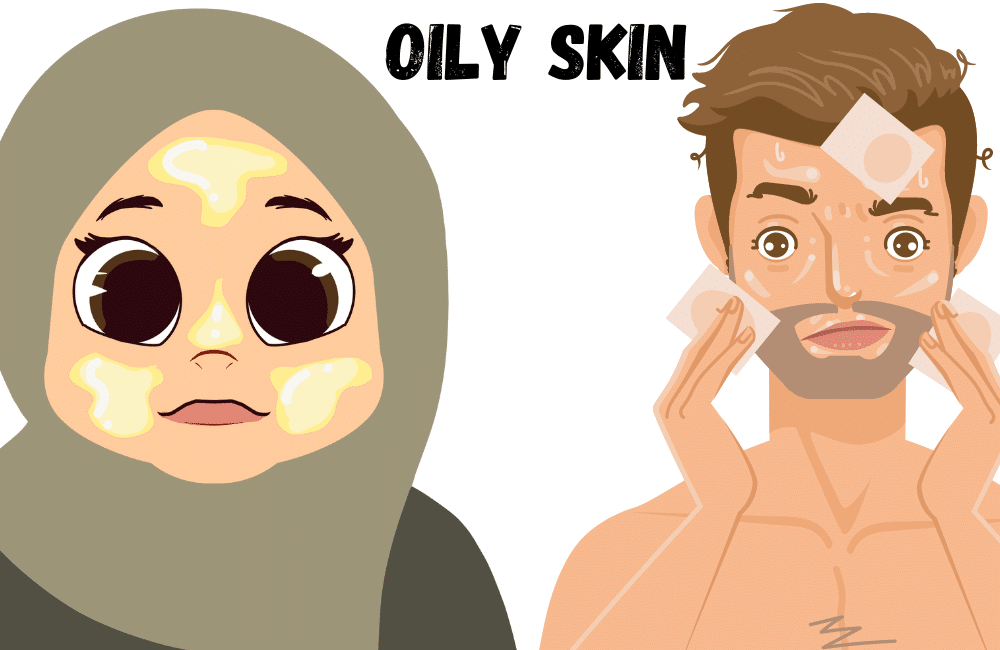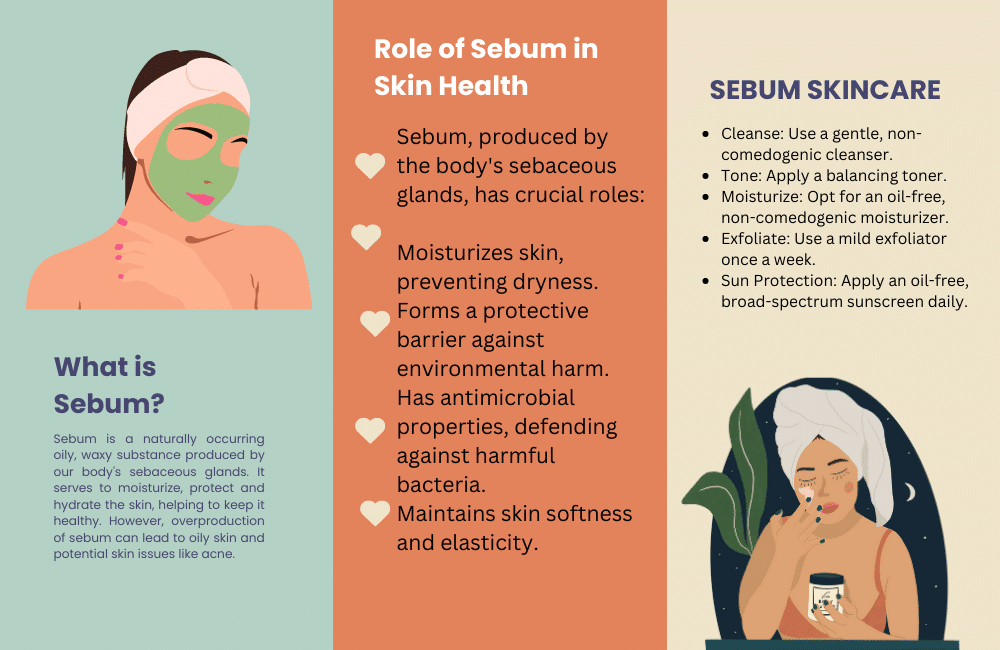Have you ever looked in the mirror only to find a shiny glare bouncing back at you? Many people across the globe can relate to this phenomenon known as “oily skin.” But what exactly is this skin type, and how does it impact our skin health? Here is the complete guide to understanding and managing oily skin.

Firstly, let’s delve into understanding what “oily skin” is. Often mistaken for a skin problem, it’s a skin type with more sebum, a natural skin oil. While it might be a nuisance to some, it’s essential to understand that sebum is not our enemy. This natural oil is crucial in maintaining skin health by providing hydration and as a barrier against harmful microorganisms.
The Role of Sebum in Skin Health
Our skin is a complex organ with a multitude of functions. Its role extends beyond providing us with physical appearance—it serves as a protective barrier against the environment, a sensory organ and plays a significant role in immune function. To perform these duties effectively, the skin needs to be well-lubricated, and that’s where sebum comes in.

Sebum, produced by the sebaceous glands, gives your skin a healthy shine and suppleness. This natural oil helps lock in moisture and protect your skin from harmful bacteria. However, when these glands become overactive, they can produce an excess of sebum, leading to what we know as oily skin.
Identifying Oily Skin
So how do you identify if you have oily skin? There are a few tell-tale signs. Your skin may appear shiny or greasy, particularly mid-day when oil production peaks. Additionally, you might have more noticeable pores and a propensity for breakouts or acne due to the excess oil and skin cell buildup.
Factors Influencing Oily Skin
There’s a common misconception that oily skin is entirely down to poor skincare, but that’s not entirely true. Multiple factors contribute to oily skin, including genetics, hormone levels, diet, stress, and climate. Understanding these factors can help individuals with oily skin better manage their skin type.
Caring for Oily Skin
Navigating skincare for oily skin may seem overwhelming, but it doesn’t have to be. Here are a few simple tips:
- Cleanse Wisely: A gentle cleanser can help remove excess oil without stripping the skin of its natural oils. Avoid harsh soaps and alcohol-based products as they can over-dry the skin, increasing oil production.
- Stay Hydrated: Even oily skin needs hydration. Choose oil-free, non-comedogenic moisturizers to hydrate your skin without clogging the pores.
- Exfoliate Regularly: Exfoliation helps remove dead skin cells that can clog pores. However, limit this to once or twice a week to avoid skin irritation.
- Eat Healthily: A diet rich in fruits, vegetables, lean proteins, and whole grains can improve skin health.
- Sun Protection: Use broad-spectrum sunscreen daily to protect your skin from UV damage. Opt for oil-free, non-comedogenic formulations.
Remember, having oily skin is not a flaw—it’s merely a skin type. And like any other skin type, it requires a different set of skincare practices. Proper understanding and management can help maintain skin health and keep that glow on! Embrace your skin type and treat it with the love and care it deserves.
The Positive Side of Oily Skin
Now that we’ve unlocked the basics of oily skin, it’s crucial to highlight the benefits that often go unnoticed. Yes, you read it right! Having oily skin does have its upsides. For starters, oily skin tends to age slower than other skin types. The presence of more natural oils helps keep the skin plumped and reduces the appearance of fine lines and wrinkles.
Oily skin is also naturally more moisturized and thus less prone to dryness and sensitivity. With the right care, individuals with oily skin can maintain a youthful, dewy appearance that others often seek with cosmetics.
Understanding the Skin Microbiome
As we dive deeper into the complexity of skin health, we must recognize the role of the skin microbiome – the billions of bacteria, viruses, and fungi that live on our skin. The overproduction of sebum can influence the composition of this microbiome, leading to an overgrowth of certain bacteria or yeast that can result in common skin conditions associated with oily skin, such as acne or dandruff.
Balancing the skin microbiome can therefore be essential to managing oily skin. This could be through probiotic skincare products, which aim to introduce beneficial bacteria to the skin, or prebiotics, which provide the nutrients these beneficial bacteria need to thrive.
Lifestyle Factors and Oily Skin
Certain lifestyle factors can also contribute to the management of oily skin. Regular exercise, for instance, can help to regulate hormonal imbalances, one of the significant contributors to excessive oil production. Moreover, exercise promotes healthy circulation and helps nourish skin cells.
Sleep is another crucial element in maintaining healthy skin. Quality sleep allows your skin to repair and regenerate, helping to keep your oil production in balance.
The Science of Skincare Products for Oily Skin
Navigating the skincare aisle for oily skin can be daunting, especially with countless products claiming to manage oil production. Understanding the science behind these products can help make informed decisions. Ingredients such as salicylic acid, benzoyl peroxide, niacinamide, and certain clays help regulate sebum production and are often found in products designed for oily skin.
Embracing Your Oily Skin
In conclusion, the journey to understanding and managing oily skin is unique for each individual. Just like any other skin type, oily skin can be both a challenge and a blessing. The key to managing it effectively lies in understanding the intricacies of your skin health and adopting a tailored skincare routine that works for you.
Remember, all skin types, including oily skin, are part of human diversity and beauty. So, embrace your skin type with knowledge, the right care, and, most importantly, self-love. After all, confidence in your own skin, irrespective of its type, is the first step towards radiant skin health.

